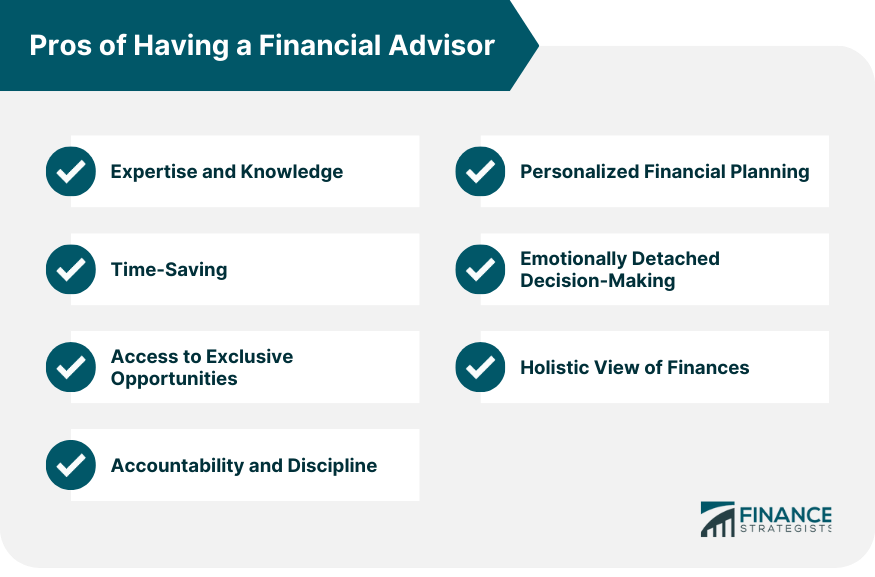When it comes to managing your finances, finding the right financial advisor is crucial. While many financial advisors work for large firms, you may also come across independent financial advisors. These individuals work on their own, providing financial advice to clients. The question is, are independent financial advisors better than those from large firms? In this guide, we will explore the advantages and disadvantages of working with an independent financial advisor and help you determine if they are suitable for your financial needs.
Understanding Independent Financial Advisors
Independent financial advisors are professionals who operate independently, offering financial advice to clients. They are not employed by large firms and have the freedom to provide tailored advice to their clients. It’s important to note that independent financial advisors are no less qualified than those working for big firms. Certified financial planners (CFPs), who undergo extensive certification and licensing requirements, can work independently and provide high-quality services to clients.
One of the key advantages of working with an independent financial advisor is that they are not bound by the production requirements of a firm. This means they may be less likely to push a firm’s preferred products on you and can offer a clearer perspective on your financial journey. However, it’s essential to acknowledge that even independent advisors may have biases or conflicts of interest.
Biases and Conflicts of Interest

While independent financial advisors have the potential to offer unbiased advice, it’s important to be aware that biases and conflicts of interest can still occur. Some advisors may be biased toward certain financial products or decisions that can benefit them personally. For example, an advisor may suggest putting more money toward a specific account to pay off your mortgage each month. While this may increase their potential profits, it could also strain your finances. It’s crucial to work with an unbiased advisor who prioritizes your financial well-being.
To determine if an independent financial advisor is unbiased, pay close attention to their recommendations and ask questions about why they are suggesting specific products or strategies. If you notice that they consistently recommend products tied to a particular company, inquire about the reasons behind their recommendations. Additionally, you can ask about any commissions they may receive from the products they offer you. Open and transparent communication is key to ensure you’re both on the same page and fully informed about the motivations behind their advice.
Choosing the Right Independent Financial Advisor
Before working with an independent financial advisor, it’s essential to ask them a series of questions to ensure they are a good fit for your financial goals. These questions can help you evaluate their credentials, expertise, and approach to financial planning. Here are some key questions to consider:
- What are your credentials? It’s crucial to verify their qualifications and certifications.
- Are you a fiduciary? A fiduciary is legally obligated to act in your best interest.
- Are there any conflicts of interest I should know about? This question helps uncover any potential biases.
- Are you fee-based? Understanding their fee structure is important for budgeting purposes.
- How do you make money from the financial products you offer? This question will shed light on any potential conflicts of interest.
- What do you specialize in? Ensure their expertise aligns with your specific financial goals.
- What services do you offer aside from portfolio management? Determine if they provide comprehensive financial planning or specialize in specific areas.
- How do you measure progress toward financial goals? Understanding their approach to tracking and assessing your progress is important.
- What is your investing philosophy? Ensure their investment philosophy aligns with your risk tolerance and preferences.
By asking these questions, you can gain a better understanding of the independent financial advisor’s qualifications, approach, and alignment with your financial goals.
The Pros and Cons of Independent Financial Advisors

Working with an independent financial advisor has several advantages. One of the primary benefits is the personalized and tailored advice you can receive. Independent advisors have the freedom to focus on your individual financial needs and goals, providing a more intimate experience compared to advisors from large firms. They can offer a holistic view of your financial situation and develop strategies that align with your specific circumstances.
Another advantage of working with an independent financial advisor is their potential for unbiased advice. While biases can still exist, independent advisors are generally less influenced by corporate interests and can provide a clearer perspective on your financial journey. This can be particularly beneficial when it comes to selecting financial products and making investment decisions.
However, it’s important to carefully consider the potential disadvantages of working with an independent financial advisor. One drawback is that they may have limited knowledge of available financial products or may not have access to low-cost options offered by large firms. Advisors at big firms often have access to a wide range of investment products and can take advantage of economies of scale to offer lower-cost options. Independent advisors may not have the same level of resources or access to these products.
The Cost of Working with a Financial Advisor
The cost of working with a financial advisor varies depending on various factors, including their fee structure and the services they provide. Some financial advisors charge a flat fee for specific projects, while others charge an hourly, quarterly, or yearly rate. These fee-only advisors typically do not receive commissions from the products they sell or recommend, which can provide greater transparency and minimize potential conflicts of interest.
On the other hand, some financial advisors earn money through commissions from the financial products they sell. While this doesn’t necessarily mean they are acting against your best interests, it’s crucial to maintain open communication and understand the products they recommend and why. By discussing their compensation structure, you can gain insight into their motivations and ensure their recommendations align with your financial goals.
It’s important to note that you don’t need to be wealthy to work with a financial advisor. There are professionals available who can assist individuals at various income levels. By shopping around and conducting thorough research, you can find a financial advisor who suits both your budget and financial goals.
Is Working with an Independent Financial Advisor Worth It?
If you have specific financial goals and value personalized advice, working with an independent financial advisor may be worth it. Their ability to provide tailored recommendations and a more personalized experience can be valuable in achieving your financial objectives. However, it’s crucial to do your due diligence as a consumer and ensure that the independent advisor is qualified, transparent, and aligned with your financial needs and values.
In conclusion, independent financial advisors offer unique advantages, including personalized advice and potential for unbiased recommendations. However, it’s important to consider their limitations, such as limited access to certain financial products and potential biases. By asking the right questions and conducting thorough research, you can find an independent financial advisor who meets your needs and helps you achieve your financial goals.
Looking for a financial advisor? Get in touch with a pre-screened financial advisor in just 3 minutes.
Frequently Asked Questions
Q: What are the disadvantages of an independent financial advisor?
A: While independent financial advisors offer personalized advice, they may have limited access to low-cost investment funds and products. Additionally, some advisors may have biases or conflicts of interest that can impact the advice they provide.
Q: How much does it cost to talk to a financial advisor?
A: The cost of working with a financial advisor varies depending on their fee structure. Fee-only advisors charge a flat fee for projects, while others may charge hourly, quarterly, or yearly rates. It’s important to discuss their fee structure and understand how they earn money from the products they recommend.
Q: Are independent financial advisors worth it?
A: If you have specific financial goals and value personalized advice, working with an independent financial advisor can be worth it. However, it’s important to thoroughly evaluate their qualifications, approach, and alignment with your financial objectives.
Looking for a financial advisor? Get in touch with a pre-screened financial advisor in just 3 minutes.
